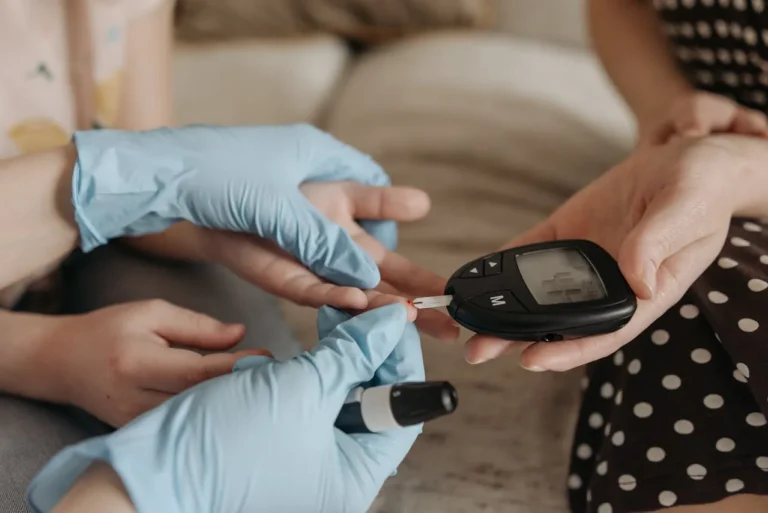
Pfizer Inc. (NYSE: PFE) announced today that the U.S. Food and Drug Administration (FDA) has approved PREVNAR 20®(20-valent Pneumococcal Conjugate Vaccine) for the prevention of invasive pneumococcal disease (IPD) caused by the 20 Streptococcus pneumoniae (pneumococcal) serotypes contained in the vaccine in infants and children six weeks through 17 years of age, and for the prevention of otitis media in infants six weeks through five years of age caused by the original seven serotypes contained in PREVNAR®.
“Today’s FDA approval of our vaccine, PREVNAR 20, now offers parents the ability to help protect their children against 20 pneumococcal serotypes in circulation, which represent the majority of pneumococcal disease in U.S. infants and children,”1,2 said Annaliesa Anderson, Ph.D., Senior Vice President and Chief Scientific Officer, Vaccine Research and Development, Pfizer. “This important PREVNAR 20 approval builds on more than 20 years of real-world impact with PREVNAR and PREVNAR 13, safety data, and effectiveness; highlighting Pfizer’s leadership in developing groundbreaking pneumococcal conjugate vaccines to help protect infants and their families from life threatening infections. We are grateful to the families and clinical investigators who participated in this research and our colleagues who have worked tirelessly to develop this breakthrough vaccine.”
In the United States, there remains a considerable burden of disease attributed to serotypes not included in currently approved pneumococcal conjugate vaccines (PCVs).1 PREVNAR 20 builds on Pfizer’s approved PREVNAR 13 vaccine, and includes seven additional serotypes (8, 10A, 11A, 12F, 15B, 22F and 33F) shown to be associated with antibiotic resistance, heightened disease severity, invasive potential, and prevalence in pediatric pneumococcal cases.1 Moreover, data show that the additional seven serotypes included in PREVNAR 20 are among some of the most common serotypes causing pediatric IPD in countries, like the U.S., with existing pneumococcal vaccination programs.1 A study found that the seven additional serotypes alone accounted for an estimated 37% of IPD in U.S. children under five years of age.1
“With the approval of PREVNAR 20 for the pediatric indication, we now have an expanded vaccine to help provide infants and children with the broadest serotype protection in a PCV, helping to protect against the 20 serotypes in the vaccine, which includes the specific serotypes responsible for significant burden of disease in children under five,” said Dr. Sheldon Kaplan, Chief, Division of Infectious Diseases, Department of Pediatrics, Baylor College of Medicine and Chief, Infectious Disease Service, Texas Children’s Hospital. “We are thrilled with this approval as it signifies a new chapter in pediatric pneumococcal conjugate vaccination. Based on the real-world results we’ve observed with PREVNAR 13, PREVNAR 20 has the potential to greatly reduce the substantial remaining burden of pneumococcal disease among U.S. infants and children and help protect them against this potentially serious disease.”
The FDA’s decision is based on results from the Phase 2 and Phase 3 clinical trial programs for the pediatric indication for PREVNAR 20. Three core Phase 3 pediatric studies contributed to data on the safety, tolerability, and immunogenicity of PREVNAR 20, including previously announced positive, top-line results of the pivotal U.S. Phase 3 study (NCT04382326). Further positive data from a Proof-of-Concept Phase 2 study (NCT03512288) that assessed the safety and immunogenicity of PREVNAR 20 also supported the FDA’s decision.
The U.S. Center for Disease Control and Prevention’s (CDC) Advisory Committee on Immunization Practices (ACIP) is committed to taking action as soon as possible on new vaccines after FDA approval. The next regularly scheduled ACIP meeting is June 21-22, 2023.
About 20-Valent Pneumococcal Conjugate (PREVNAR 20) Vaccine Regulatory Review
The FDA granted PREVNAR 20 Breakthrough Therapy Designation in August 2020 for the pediatric indication for invasive pneumococcal disease (IPD). Breakthrough Therapy Designation is designed to expedite the development and review of drugs and vaccines that are intended to treat or prevent serious conditions and preliminary clinical evidence indicates that the drug or vaccine may demonstrate substantial improvement over available therapy on a clinically significant endpoint(s).3 Drugs and vaccines that receive Breakthrough Therapy Designation are eligible for all features of the FDA’s Fast Track designation, which may include more frequent communication with the FDA about the drug’s development plan and eligibility for Accelerated Approval and Priority Review, if relevant criteria are met.4
In August 2022, Pfizer announced positive top-line results from its pivotal Phase 3 study in U.S. infants (NCT04382326) and, in January 2023, the U.S. FDA accepted for priority review a supplemental Biologics License Application (sBLA) for PREVNAR 20 for the prevention of IPD for the pediatric indication.
Additional positive top-line results from Pfizer’s Phase 3 study (NCT04546425) in infants in the European Union were announced in September 2022. In November 2022, Pfizer submitted the 20-valent pneumococcal conjugate vaccine candidate pediatric indication to the European Medicines Agency (EMA).
INDICATIONS FOR PREVNAR 20
PREVNAR 20 is a vaccine approved for:
- the prevention of invasive disease caused by 20 Streptococcus pneumoniae strains (1, 3, 4, 5, 6A, 6B, 7F, 8, 9V, 10A, 11A, 12F, 14, 15B, 18C, 19A, 19F, 22F, 23F, and 33F) in individuals 6 weeks and older.
- the prevention of otitis media (middle ear infection) caused by 7 of the 20 strains in individuals 6 weeks through 5 years.
IMPORTANT SAFETY INFORMATION FOR PREVNAR 20
- PREVNAR 20 should not be given to anyone who has had a severe allergic reaction to any component of PREVNAR 20 or to diphtheria–toxoid-containing vaccine.
- Individuals with weakened immune systems may have a lower immune response. Safety data are not available for these groups.
- A temporary pause in breathing after getting the vaccine has been observed in some infants who were born prematurely. For premature infants, talk to your doctor about the infant’s medical status when deciding to get vaccinated with PREVNAR 20.
- In individuals 2, 4, 6, and 12 through 15 months of age vaccinated with a 4-dose schedule, the most common side effects reported at a rate of >10% were irritability, pain at the injection site, drowsiness, decreased appetite and injection site redness, injection site swelling, and fever.
- In individuals 15 months through 17 years of age vaccinated with a single dose, the most common side effects reported at a rate of >10% were irritability, pain at the injection site, drowsiness, fatigue and muscle pain, decreased appetite, injection site swelling and injection site redness, headache, and fever.
- Ask your doctor about the risks and benefits of PREVNAR 20. Only a doctor can decide if PREVNAR 20 is right for your child.
View the full Prescribing Information.
INDICATIONS FOR PREVNAR 13
- PREVNAR 13 is a vaccine approved for children 6 weeks through 17 years of age for the prevention of invasive disease caused by 13 Streptococcus pneumoniae strains (1, 3, 4, 5, 6A, 6B, 7F, 9V, 14, 18C, 19A, 19F, and 23F), and for children 6 weeks through 5 years for the prevention of otitis media caused by 7 of the 13 strains.
- PREVNAR 13 is not 100% effective and will only help protect against the 13 strains included in the vaccine.
IMPORTANT SAFETY INFORMATION
- PREVNAR 13 should not be given to anyone with a history of severe allergic reaction to any component of PREVNAR 13 or any diphtheria toxoid–containing vaccine
- Children with weakened immune systems (e.g., HIV infection, leukemia) may have a reduced immune response
- A temporary pause of breathing following vaccination has been observed in some infants born prematurely
- The most commonly reported serious adverse events in infants and toddlers were bronchiolitis (an infection of the lungs) (0.9%), gastroenteritis (inflammation of the stomach and small intestine) (0.9%), and pneumonia (0.9%)
- In children 6 weeks through 17 years, the most common side effects were tenderness, redness, or swelling at the injection site, irritability, decreased appetite, decreased or increased sleep, and fever
- Ask your healthcare provider about the risks and benefits of PREVNAR 13. Only a healthcare provider can decide if PREVNAR 13 is right for your child
About Pfizer: Breakthroughs That Change Patients’ Lives
At Pfizer, we apply science and our global resources to bring therapies to people that extend and significantly improve their lives. We strive to set the standard for quality, safety and value in the discovery, development and manufacture of health care products, including innovative medicines and vaccines. Every day, Pfizer colleagues work across developed and emerging markets to advance wellness, prevention, treatments and cures that challenge the most feared diseases of our time. Consistent with our responsibility as one of the world’s premier innovative biopharmaceutical companies, we collaborate with health care providers, governments and local communities to support and expand access to reliable, affordable health care around the world. For more than 170 years, we have worked to make a difference for all who rely on us.
Source: https://www.pfizer.com/




